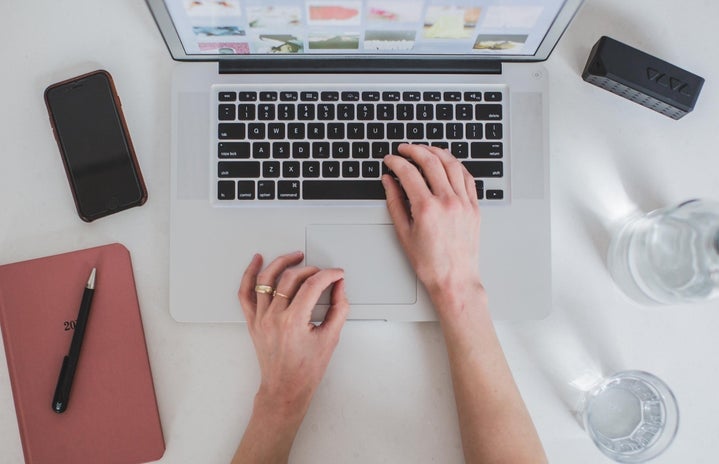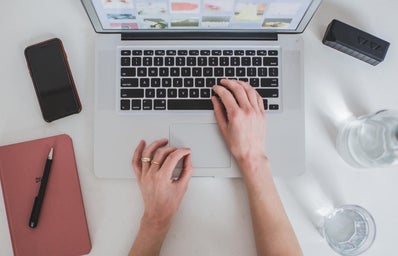Procrastination was once my middle name. My high school career consisted of last-minute dashes to finish a research paper or cramming for tests until the second before they started. With procrastination comes enormous amounts of stress and doubts like “will I be able to finish this on time;” not to mention that, oftentimes, the assignments we procrastinate on don’t get us the grades we want.
With these 8 simple hacks to keep procrastination at bay, say goodbye to those all-nighters and eleven hour school days!
- The Good Ol’ To-Do List!
-
I know, I know – too easy to be true, right? But don’t underestimate the power of a to-do list! By writing out and regularly updating the tasks that you have “to do,” you can plan for your time and visualize how much work you need to accomplish each day. Furthermore, in the act of writing down the tasks you have to complete, you actually take time to acknowledge them and are less likely to forget or procrastinate.
Are you thinking “I’ve already tried to-do lists and they DON’T work!”
My answer? Try again. And this time, try to set multiple small goals. Try to break down large projects – like a long research paper or studying for a test – into smaller tasks. Like the famous saying goes, “Rome wasn’t built in a day.”
For example, try breaking a research paper or test material into multiple parts as opposed to jotting down one bullet point that reads “research paper” or “study for Stat midterm.”
- Designated Workspaces
-
This one may come across as common sense, but, if possible, try to keep your workspace separate and out of sight of your bedroom. In separating the two spaces, one designated for work and the other for rest, you will be more focused on the task at hand.
For example, a study conducted in 1975 found that you’re better able to recall information when you’re in the same environment where you first learned it. Scuba divers were asked to memorize random words while underwater and on land. When tested, divers were more likely to recall the words when they were asked to remember them in the same place they had first learned them.
The point is that consistency is key – separating your workspace from your bedroom, dining room, kitchen, etc. allows your brain to better focus in each separate environment.
- Multi-Tasking is Imaginary
-
I was shocked too, but this couldn’t be more true. I’m sure we’ve all tried multitasking, whether it’s having a TV show running in the background while you’re doing homework or replying to your bestie’s text while writing an essay. However, in those instances, you’re really only doing one of two tasks, not both at once. If you have a TV show playing in the background and an assignment in front of you, you’re either watching the show or working on the assignment. Multitasking proves to be an academic unicorn of sorts, in that it’s imaginary.
As if not being able to do more than a single task at once wasn’t tragic enough, multitasking has also been shown to increase the time required for the individual tasks. When we attempt to multitask, we don’t give our 100% to complete anything we’re doing. In turn, the total amount of time we must spend working actually increases.
Furthermore, a University of California study showed that it takes an average of 25 minutes for an individual to return to a task after an interruption or distraction. Since we are often interrupted while engaged in a task, those minutes add up and can lead to a large waste of time.
- Breaks Are as Important as Work
-
This is a concept that took me quite a while to adjust to. After all, who has time for a break when there are deadlines or exams? And what’s so important about taking a break?
You do have time for a break. By taking a break, you refresh your mind and body, which is essential in order to stay focused and productive. Constant work and focus take a toll on cognitive function and productivity.
Don’t believe me? One quick way to test this is by staring at something in front of you (like this article!) for a long period of time. Keep staring. Keep staring. Keep staring. Eventually, you’ll feel your focus drift. The same thing happens when you do something for hours on end without a break. It’s important to remember to take a break and let your mind and body rest.
- Fresh Air Makes All the Difference
-
In order to minimize feelings of fatigue, one quick trick is to get some fresh air: stand up, stretch, walk around your house or your neighborhood. Afterwards, you’ll find yourself mentally and physically ready to continue being productive! Getting a breath of fresh air, going for a short walk, or even scrolling through a few Tiktoks can make a huge difference. After all, there’s a limit to how long anybody can focus. It follows that getting up and changing your environment aids in refreshing your mind and body.
It’s also important to remember that we’re only human, no matter how determined we are or how much work we have to finish before an approaching deadline.
- Record and Remember Deadlines
-
CAUTION: deadlines are always closer than they appear.
A common obstacle to productivity is fast-approaching deadlines. One day, you’re sitting in class, and the professor tells you that you have a research paper due in a month. The next thing you know, you’re up until midnight before the deadline, questioning life and wondering “where did I go wrong?”
The answer? Not keeping track of the deadline.
Don’t worry, you’re not the sole victim of the procrastination trap; I’ve fallen for it too. Multiple times. From my years of experience, I can testify that one effective method to combat procrastination is to record and remember deadlines. Record deadlines, either in your planner, on a digital calendar, or basically any place that you use to track your assignments and due dates. Personally, I find that an inexpensive method is to list due dates on a sheet of looseleaf paper taped somewhere you’ll look frequently.
- Use Meditation and Mindfulness to Relax and Unwind
-
I’m sure we’ve all heard about the effectiveness of meditation and mindfulness in reducing stress and increasing productivity. I’m here to tell you that it’s true; meditation and mindfulness work! I understand how hard it can be to do absolutely nothing for a few minutes while listening to a meditation and mindfulness exercise via YouTube. However, don’t stop using meditation and mindfulness as a way to reduce stress, boost productivity, and relax before, during and after a long day. Life moves so fast, and I understand feeling like “if I don’t do something productive every minute, I’ll fall behind.” I feel it too. But meditation and mindfulness is a time where you can focus on relaxing and reflecting without any distractions.
- Changing Perspectives
-
While this is probably the weirdest tip on this list, it’s also the simplest and most effective. All you need to do to change your perspective is alter the way you look at things. For example, if you’re caught up in a stressful week filled with due dates, you might begin to spiral. However, if you consider a more optimistic perspective, you’ll find yourself generally less stressed and more productive. We tend to avoid things that we dislike, and there is always foreboding associated with approaching deadlines. In transforming the way we think and feel toward certain things, we can make ourselves less resistant to beginning projects and assignments!
- Bonus hack! You can laugh away stress!
-
Yes, I know. What the actual heck? But it’s true. Numerous studies have shown that laughing can dramatically reduce stress! So, if you’re ever caught up in a rut, find yourself pulling out your hair, or just in need of a quick stress reducer – stop, breath, and laugh.


